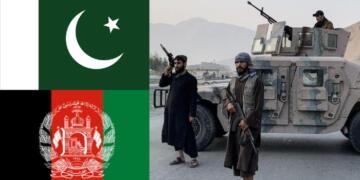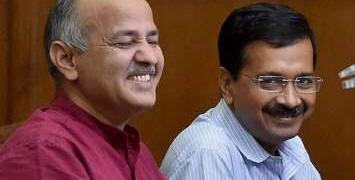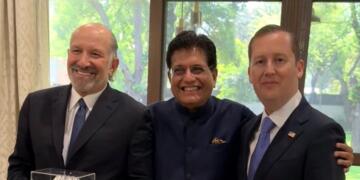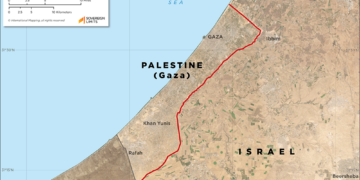Trinamul Leader Arrested for Murder of Party Associate in Malda: Investigations Reveal Deep Feuds and Allegations of Political Conspiracy
In a significant development from Malda, West Bengal, Narendranath Tiwari, president of the English Bazar town committee of the Trinamool Congress (TMC), was arrested on charges of involvement in the murder of fellow TMC leader Dulal Sarkar (alias Babla). His assassination has raised suspicions of deep-rooted political infighting within the party. The incident occurred on January 2, when Sarkar was shot dead in broad daylight, sending shockwaves through the local political landscape.
Tiwari’s arrest follows a week of intense police investigations, which involved questioning him and his brothers, Birendranath and Akhilesh, at the English Bazar police station.

Despite police refraining from clarifying the precise evidence that led to Tiwari’s detention, it is clear that a personal grudge, possibly fueled by political rivalry, is central to the case.
Political Rivalries and Personal Grudges at Play
Sarkar, a prominent TMC councillor in the English Bazar Municipality and a close associate of Chief Minister Mamata Banerjee, was shot by bike-borne assailants near the Malda-Kotwali highway. The murder, which occurred in the morning hours of January 2, is suspected to have been carried out with the assistance of hired shooters from Bihar. As per the police, a hefty sum of Rs 50 lakh was exchanged between the masterminds and the assailants to carry out the crime.
Tiwari, who has ties with state minister Sabina Yasmin, was allegedly involved in a long-standing feud with Sarkar, which was exposed during the 2022 municipal elections.
At that time, Sarkar’s followers were accused of assaulting Tiwari and his brother, Birendranath. Additionally, the police are investigating the possibility of business rivalry. However, political animosity is believed to have played a significant role in the deadly confrontation.
Multiple Arrests and Suspicions of Conspiracy
Seven people have been arrested in connection with the murder, including Swapan Sharma, a contract killer with a history of violent offences. Sharma’s involvement is still under investigation, though initial interrogations have pointed towards a larger conspiracy, with some accusing him of orchestrating the attack.
The police have also identified two absconding suspects, Rohan Rajak and Bablu Yadav, who are believed to have masterminded the murder. A bounty of Rs 2 lakh has been announced for information leading to their capture.
According to Additional Director General (South Bengal) Supratim Sarkar, the investigation has reached an advanced stage. However, while initial findings suggest a personal grudge stemming from an old incident, further details of the motive are still unclear.
Allegations and Political Fallout
The murder of Dulal Sarkar has sparked a wave of political controversy and accusations, with key figures within the TMC and opposition parties offering conflicting perspectives on the case.
Krishnendu Narayan Choudhury, Chairman of the English Bazar Municipality, has publicly stated that Tiwari had threatened Sarkar before the murder. He claimed that Tiwari’s desire to control the area was a motive for the crime. Choudhury further alleged that external forces might have been aiding Tiwari, hinting at the involvement of powerful figures in the party.
Meanwhile, TMC leader and Minister of State for North Bengal Development, Sabina Yasmin, expressed shock over the incident. She denied any involvement in ordering the withdrawal of Sarkar’s security, as accused by some. Yasmin reiterated that the police were doing their job, investigating the crime thoroughly, and vowed to uncover the truth.
However, opposition parties, particularly the BJP and Congress, have pointed fingers at the TMC’s internal infighting and corruption as the driving forces behind the murder. State BJP President Sukanta Majumdar linked the murder to land disputes and monetary dealings, asserting that the TMC’s infighting over resources was at the heart of the tragedy.
Former Congress MP Adhir Ranjan Chowdhury accused Mamata Banerjee of trying to suppress the involvement of high-ranking TMC figures, as Sarkar’s wife had previously claimed that larger political players were behind the plot.
Chief Minister’s Reaction and Accountability
The political fallout from the murder has reached the highest echelons of the state government. Mamata Banerjee, in an administrative review meeting following the crime, publicly criticized the Malda Superintendent of Police for withdrawing Sarkar’s security, despite the latter’s history of being targeted in previous attacks.
“The district police had withdrawn his security. He was an old party worker and had earlier faced attacks. It is because of the lapses on the part of the police that he lost his life,” the CM stated.
As investigations continue, the focus remains on understanding the full scope of the conspiracy and the true motivations behind the murder. The case has not only highlighted the violent undercurrents within the TMC but has also raised significant questions about the state’s political dynamics and the influence of personal rivalries in shaping the party’s internal conflicts.
The arrest of Narendranath Tiwari is a critical turning point in the investigation, but with several suspects still on the run and many questions left unanswered, this political murder may yet reveal more untold stories of ambition, betrayal, and power struggles within the ruling party of West Bengal.
Conclusion :
The murder of Dulal Sarkar highlights the growing lawlessness in West Bengal, a trend that seems to be filtering down from the political elite to the grassroots. With increasing identity-based crimes, poverty, and political infighting, the state’s promises of progress are falling short.
The lack of accountability and a strong legal framework is fueling violence and corruption, creating an environment where power struggles overshadow the needs of the people. Without immediate action, the situation in Bengal risks further deterioration, leaving behind a legacy of fear and missed opportunities.
The people of Bengal deserve a government that prioritizes peace, justice, and development over political gamesmanship. Only by addressing these deep-seated issues can the state hope to secure a future free from fear and corruption.
What steps should be taken next to restore accountability and curb political violence in Bengal? Join the conversation and share your thoughts.
























